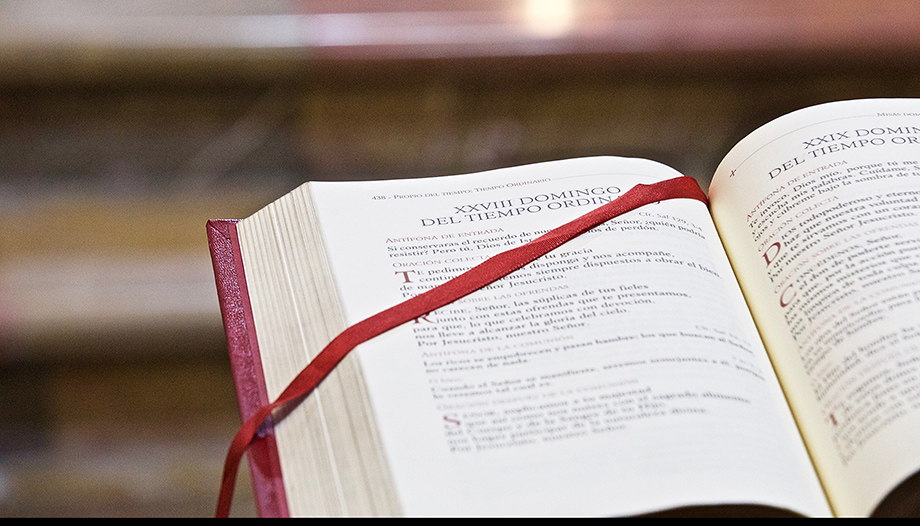The readings of today's Mass have a clear ecological sense. The first reading takes us back to the time after the flood. The flood is over, Noah has left the ark and God makes a covenant with all creation. He promises not to destroy the world again and makes the rainbow the sign of his promise.
The Gospel of today's Mass is Mark's version of the temptations of Christ in the desert, and this version is the briefest of all. It simply gives us a summary. We read: "Then the Spirit drove him into the wilderness. He stayed in the wilderness forty days, being tempted by Satan; he lived with the wild beasts, and the angels ministered to him."
Every word counts here. And it also has an environmental angle. The Holy Spirit does not take us back to Noah, but to Adam and Eve. Jesus is presented as the new Adam. He is not in a garden, but in a desert, because Adam and Eve's sin spoiled the garden and turned it into a desert. And instead of the animals with which our first parents lived in peace, we have wild beasts. Peaceful animals have become wild beasts. Thus, the scene is one of desolation: the beautiful and peaceful Eden is now a barren wilderness with wild animals. And just as Satan was there in Eden tempting Adam and Eve, he now appears to tempt Jesus.
Jesus appears here very much in his humanity. He seems to have set aside his divinity. That is why he needs the support of the good angels. The devil is back to his old ways. Just as he made Adam and Eve greedily eat the fruit, he now tries to make Jesus greedily turn stones into bread. But Jesus resists and, in doing so, teaches us to resist Satan's temptations.
Jesus is here, in the desert, somehow turning it into paradise. And his final triumph will be revealed in the garden of the Resurrection. It is like a new and better Eden. Christ's work of salvation is primarily for humans, but it also affects all of nature. Just as the salvation God granted Noah included a new, renewed and more respectful relationship with creation, God even promised to be more respectful himself to it in order to teach us to do the same. Just as God rested the Sabbath to teach us to do so.
Thus, today's readings speak to us of the Garden of Eden and the world after Noah. They speak to us about respecting creation and not abusing it. They tell us that if we want to return to the garden, spiritually speaking, we have to respect creation. For the world to be more of a garden with God than a desert with Satan, we have to learn to say no to ourselves and limit our consumption.
Homily on the readings of the first Sunday of Lent
The priest Luis Herrera Campo offers its nanomiliaA short one-minute reflection for these Sunday readings.











